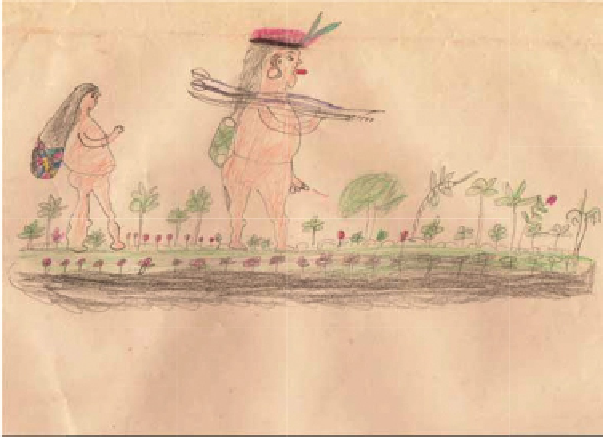Geography Reference
In-Depth Information
Figure 2.9. Suyá couple looking for a good place to live. Paikô Suyá, 1990.
the natural and social environments, substantiated by the work of ritual and political
specialists such as shamans, village headmen, and artists. The knowledge generated
in this world-making process is largely informed by feelings of compassion and
solidarity, which bring people and animals together, and strengthen principles of
reciprocity - essential to the social and emotional well-being of all beings, human
or not.
The information big landowners, farmers, government officials, and corporate
executives have relied on in their process of world-making, however, relies on
insatiability and self-indulgence over the country's natural resources, in the true
spirit of an ever more advanced capitalism - now known as globalization. This
becomes quite clear by the absolute lack of respect and compassion, evidenced in
the court cases here considered, towards peoples who are presumed to be culturally
different and thus somehow “deficient.” Interestingly, when these dramatically
contrasting versions of the world collide in the language of Brazilian jurisprudence,
Indigenous
truth
has started taking precedence over non-Indigenous truth. If we
relate truth to the more general notion of rightness to fit a particular worldview
(Goodman 1978:126-128), the truth of Suyá statements stem from the rightness of
their depiction of the universe as a hybrid of human and non-human forms of life.
The map-making knowledge that Suyá and other Indigenous shamans have
recently contributed to Brazilian court cases has meant more than the exclusive
repossession of their ancestral territories. The successful outcome of these litigations
in favor of the Suyá, Juruna, Trumai, and other peoples mentioned in this chapter

